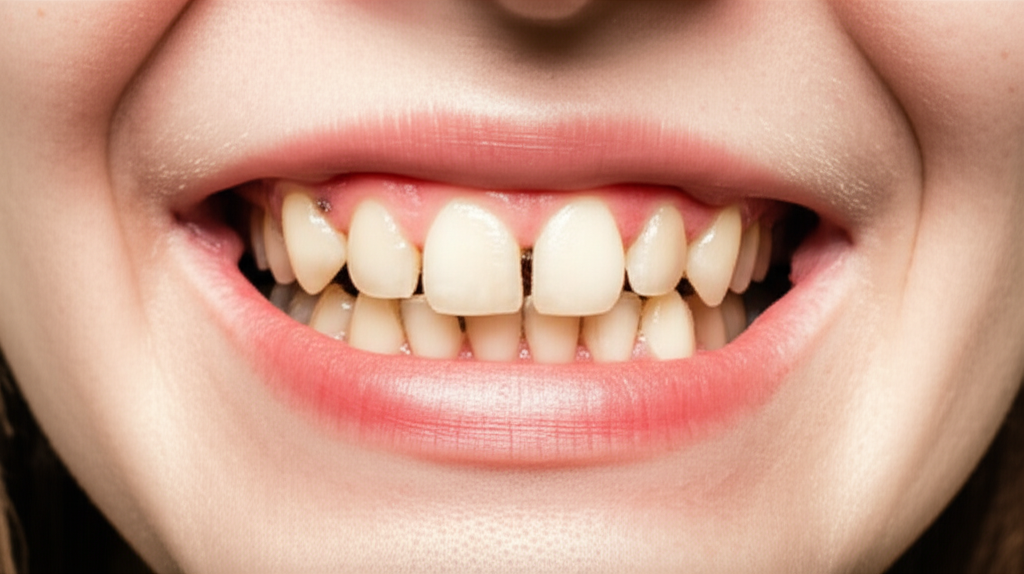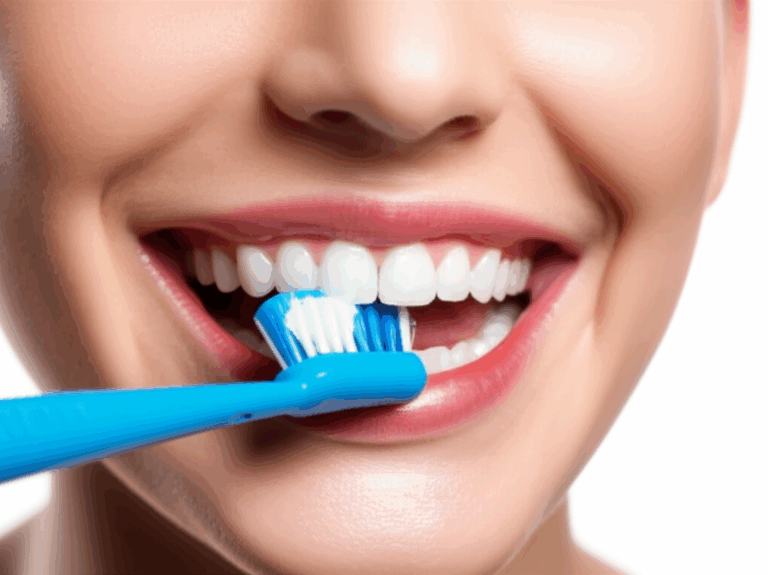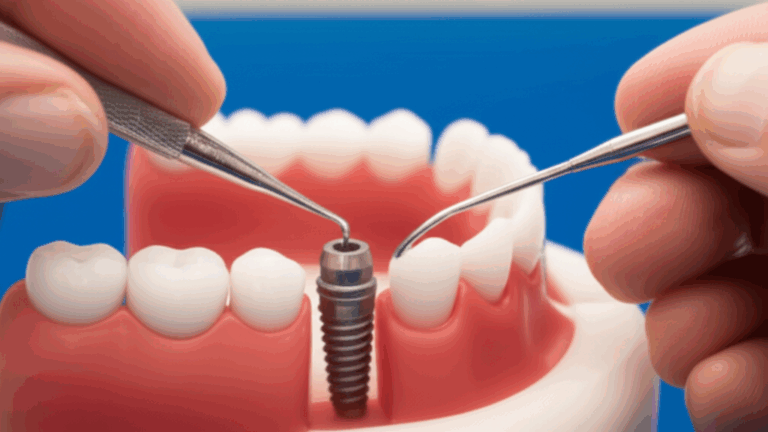
The Oral Impact: How Autoimmune Diseases Affect Your Dental Health
Autoimmune diseases can cause a lot of mouth problems, but most people don’t realize how strong this link is. Inside your mouth, your immune system might be fighting battles every single day. Ever bitten an apple and had pain, or felt your mouth was dry and sticky? Maybe you get mouth sores that just won’t go away. If any of this sounds like you, keep reading. You’ll find out why these diseases bother your mouth, which ones are the hardest on your teeth, and most importantly — what you can do to keep your smile safe. Read this for real answers, simple facts, and some hope for your mouth, even if you have an autoimmune disease.
Table of Contents
- What Are Autoimmune Diseases and How Do They Affect the Mouth?
- Why Is the Mouth So Vulnerable with Autoimmune Disease?
- Can Autoimmune Disease Really Cause Dental Problems?
- What Kinds of Dental Problems Are Most Common?
- Which Diseases Cause the Worst Oral Issues?
- How Does Dry Mouth Damage Teeth and Gums?
- Are Gum Problems Linked to Autoimmune Diseases?
- Mouth Sores, Thrush, and Infections: What Should You Watch For?
- Managing Oral Health with Autoimmune Disease: Top Tips
- When Should You See the Dentist or Doctor?
- FAQ (Optional)
- Key Points to Take Away
What Are Autoimmune Diseases and How Do They Affect the Mouth?
You might wonder what an autoimmune disease is and why it’s a big problem. Well, think of your immune system like an army. This army is supposed to fight germs and keep you well. But with an autoimmune disease, the army gets mixed up. It starts attacking your own body — sometimes it hurts your joints, organs, or even your mouth.
Your mouth has a lot of special parts: gums, teeth, tongue, spit glands, and the soft skin inside. If your immune system gets confused, it can hurt any of these, causing pain, swelling, dryness, and more.
When your own body attacks you by mistake, normal mouth jobs like making spit, cleaning teeth, or keeping the gums healthy can stop working right. That’s when mouth problems start.
Why Is the Mouth So Vulnerable with Autoimmune Disease?
Let’s think of your body like a city, and your mouth is the front door. In healthy people, the immune system guards the door. But with autoimmune diseases, the guards are weak or sometimes even attack the city itself. Here’s why:
- Whole-body Inflammation: Always being a little inflamed makes your gums and jaw sore.
- Immune System Not Working Right: Your body can’t fight germs like it should, so tiny problems in your mouth can get big fast. Sometimes, your own cells attack good parts of your mouth.
- Spit Gland Problems: Diseases like Sjogren’s Syndrome can dry your mouth out. Spit helps keep your mouth clean and fights germs, so without it? Trouble shows up fast.
Also, the medicines you take to control autoimmune diseases — like steroids and immune blockers — can make your mouth even drier and bring on more infections and sores.
Can Autoimmune Disease Really Cause Dental Problems?
Here’s the short answer: Yes!
People with autoimmune diseases get a lot more mouth problems than those without. It’s not just a little bit more likely — for some things, your risk goes up three or five times.
Look at this easy table:
| Dental Problem | How Much Higher Risk with Autoimmune Disease? |
|---|---|
| Dry Mouth (Xerostomia) | Almost all patients (like those with Sjogren’s) |
| Cavities (Dental Caries) | 3-5 times more likely (especially with dry mouth) |
| Gum Disease (Periodontitis) | 2-4 times more, and worse |
| Mouth Sores | Almost everyone with Behcet’s; up to half with Lupus |
| Oral Thrush (Candidiasis) | Most people with certain autoimmune diseases |
| Jaw and Face Pain | More than half with Rheumatoid Arthritis |
Autoimmune diseases can mess up every part of your mouth: gums, teeth, jawbone, even how things taste. If you don’t treat these problems, things can get much worse over time.
What Kinds of Dental Problems Are Most Common?
You might think going to the dentist is just about finding cavities. With autoimmune disease, there’s a lot more happening.
Let’s go through the main mouth problems:
1. Dry Mouth (Xerostomia)
- Does your mouth feel like sandpaper on your tongue?
- Spit dries up, so food sticks and your teeth have no protection.
- Makes it much easier to get cavities, oral thrush (yeast infections), and even have trouble swallowing.
2. Gum Disease (Gingivitis & Periodontitis)
- Gums get red, bleed, and may pull away from your teeth.
- The jawbone may get weak (bone loss); teeth might become loose or fall out.
- This happens faster and is worse when your immune system is not normal.
3. Tooth Decay and Tooth Loss
- Dry mouth and gum trouble speed up tooth decay.
- Teeth can get brittle and break more easily.
4. Mouth Sores and Lesions
- Small painful sores (ulcers) pop up.
- Diseases like lichen planus, pemphigus, or bullous pemphigoid cause blisters too.
- Cracked lips (cheilitis) can hurt as well.
5. Oral Infections
- Yeast infections (like thrush) can be bad.
- More likely to get bacterial infections and even abscesses.
6. Jaw Problems
- TMJ can make the jaw hurt, click, or hard to open.
- Face pain and nerve problems can happen in things like rheumatoid arthritis or trigeminal neuralgia.
If you have an autoimmune disease and spot these signs, don’t just ignore them!
Which Diseases Cause the Worst Oral Issues?
Not every autoimmune disease will make your mouth worse, but some are known to be really hard on your teeth and gums. Let’s look at the ones that cause the most trouble.
Sjogren’s Syndrome:
- The “main” disease for dry mouth.
- Almost everyone with Sjogren’s gets a dry mouth.
- High risk for quick cavities, gum problems, and yeast infections.
Systemic Lupus Erythematosus (SLE):
- Makes mouth sores, dry mouth, higher chance for gum disease.
- Sores often show up on the tongue, inside the cheeks, or roof of the mouth.
Rheumatoid Arthritis:
- Higher risk for jaw problems, pain, and strong gum infections.
- Sometimes happens together with Sjogren’s, making everything worse.
Crohn’s Disease & Ulcerative Colitis:
- Bring mouth sores, swelling, and bumpy areas inside the mouth.
- Gum disease is more likely, thanks to inflammation and not absorbing vitamins well.
Scleroderma:
- This thickens and tightens around the mouth — hard to open wide.
- Dry mouth and roots wearing down is common.
Behcet’s Disease:
- Almost everyone gets lots of mouth sores.
- These are very painful and make eating and talking tough.
Type 1 Diabetes:
- High blood sugar makes all mouth infections worse.
- Gum disease gets big fast, and mouth wounds heal slowly.
If you have one of these, your dentist should be like your partner in taking care of your mouth.
How Does Dry Mouth Damage Teeth and Gums?
Dry mouth isn’t just a small problem. It can cause a lot of tooth trouble.
Spit is really important. It cleans away food, fights germs, keeps acids balanced, and even helps fix small holes in your tooth enamel. If you don’t have enough spit because of an autoimmune disease, your mouth loses its best protector.
Without spit:
- Cavities show up quickly, especially between your teeth or near the gum line.
- You may feel sticky or have trouble swallowing soft foods.
- Gums get sore and swollen, and can get infected.
- It’s much easier to get yeast infections like thrush.
You might also notice taste changes, a burning feeling, and bad breath coming along.
If your mouth starts feeling dry, tell your doctor. Some easy tricks — sipping water, chewing sugar-free gum, or using fake spit sprays — can give relief. And brushing with fluoride toothpaste gives your teeth extra power when you need it.
Are Gum Problems Linked to Autoimmune Diseases?
Yes, for sure. Gum disease, from the early stage (gingivitis) to the bad stage (periodontitis), is a big problem with autoimmune diseases.
Why? Because your body is always a little inflamed, the gum around your teeth breaks down faster. The part that keeps your teeth in (the periodontium) gets weak and germs move in.
Just look at rheumatoid arthritis — people with this get gum disease two or three times more than those without. They’re also more likely to lose the bone holding their teeth in place. Other diseases like lupus and diabetes can also cause these same issues.
If no one stops it, periodontitis can eat away at the bone (called the alveolar bone) that holds your teeth. That means loose teeth, or lost teeth.
The good news? Seeing your dentist, getting your teeth cleaned, and keeping good habits can slow this down — or sometimes stop it.
Want to know more about keeping gums strong? Here’s a guide on teeth health.
Mouth Sores, Thrush, and Infections: What Should You Watch For?
Autoimmune diseases often cause trouble with mouth sores, infections, and weird feelings.
Look out for these:
- Canker sores: Painful, round sores inside the lips, cheeks, or on your tongue. Show up often with lupus, Behcet’s, and Crohn’s.
- Oral lichen planus: White lines or burning red spots usually from immune system problems.
- Pemphigus and pemphigoid sores: These cause blisters that pop and leave sore, raw skin.
- Oral thrush: Thick, white patches that wipe away and leave a red, sore patch underneath.
Sometimes your mouth feels stiff, burns, tingles, or makes it hard to swallow.
If you see a sore that doesn’t go away in two weeks or you have pain getting worse, call your dentist. It could mean an infection or sometimes even something really serious, like mouth cancer, if you have an autoimmune disease.
Need more details on mouth troubles? Check out our dental diseases page.
Managing Oral Health with Autoimmune Disease: Top Tips
You’re not stuck being a victim! Even if your immune system is tricky, there’s lots you can do.
Go to the Dentist More
- Try to see your dentist every three or four months.
- Bring a list of your medicines and your autoimmune diagnosis to your appointment.
- Seeing your dentist early catches little problems before they get big.
Step Up Your Home Care
- Brush your teeth with fluoride toothpaste twice a day.
- Floss gently, but keep it up.
- Rinse with an alcohol-free mouthwash, and pick one for dry mouth if you can.
Fight Dry Mouth
- Sip water all day. Always carry a bottle.
- Suck on sugar-free mints or chew gum with xylitol.
- Ask your doctor if you can use spit substitutes if it still feels bad.
Eat Smart
- Try to cut out sugary and acidic drinks.
- Crunchy fruits and veggies are good — they help clean teeth.
Talk to Your Doctors
- Tell your dentist about your autoimmune disease and every medicine you take.
- Tell your regular doctor if you have new mouth problems, too.
Protect your dental work — especially if you have crowns, bridges, or implants! Good work from a crown and bridge lab or an implant dental laboratory can last, but only if you care for it every day.
When Should You See the Dentist or Doctor?
Be on the lookout if you have these mouth problems — and go see your dentist or doctor if:
- Mouth stays dry, even when you drink lots of water
- Gums are bleeding, swollen, or sore and don’t get better
- New mouth sores or blisters, especially if they last beyond 10 days
- Have mouth pain, burning, or problems chewing and swallowing
- Gum or tooth pain wakes you up at night
- See weird colors or patches on your tongue, cheeks, or lips
Don’t wait! Dental problems from autoimmune disease don’t heal by themselves and usually get worse.
FAQ
Q: If my mouth feels fine, is my autoimmune disease under control?
A: Not always, but if your gums and teeth are okay, it might mean your meds are working and there is less inflammation. Still, see your doctor and dentist a lot.
Q: Are special dental services good for me?
A: Yes! If you need new teeth or have lost teeth from autoimmune disease, get a china dental lab that works with your dentist — they know what you need.
Q: Is it safe to get dentures or implants with autoimmune diseases?
A: Yes, but use a dentist who has experience. They can use tough materials from a zirconia lab or dental ceramics lab to make things last longer.
Q: What if my medicines are making my mouth worse?
A: Tell your doctor! You might be able to change to a different medicine, or add something (like spit helpers or anti-yeast pills) to help.
Key Points to Take Away
- Autoimmune diseases often hurt your mouth, causing dry mouth, sores, gum disease, tooth decay, infections, and jaw pain.
- Spit is really important. When it’s missing, problems grow fast.
- Common diseases like Sjogren’s, lupus, rheumatoid arthritis, Crohn’s, and diabetes can lead to big dental problems.
- Going to the dentist, doing good home care, and talking to all your doctors helps your mouth a lot.
- Don’t ignore mouth pain, dryness, or sores that stay around — get them checked out!
- Modern dental labs and experts can help you keep your smile, even when autoimmune disease tries to get in the way.
Print this out or save these notes. With simple steps, good teamwork, and some care, you can keep your smile healthy — no matter what your immune system does.
References:
For more simple resources about teeth, see our teeth information page.








